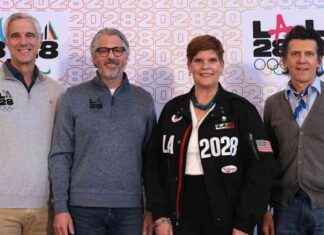The French President, Emmanuel Macron, and his Brazilian counterpart, Luiz Inacio Lula da Silva, harshly criticized, Thursday March 28, the exclusion of opponent Corina Yoris from the July presidential election in Venezuela.
“We very strongly condemn the exclusion of a serious and credible candidate from this process,” Macron said at a press conference in Brasilia, following a three-day official visit to Brazil. “We are calling for his reinstatement and I very much hope that we can have a framework thus rebuilt in the coming weeks and months. Today we must not despair (…), but the situation is serious and it has deteriorated by this decision which was taken,” he added.
Lula, for his part, considered it “serious” that Corina Yoris was not able to register for the July 28 vote, as an opposition candidate to Venezuelan President Nicolas Maduro, in power for eleven years. “There is no legal or political explanation for prohibiting an opponent from being a candidate,” said the left-wing president. “I told Maduro that the most important thing to restore normality in Venezuela was to avoid any problems in the electoral process, that the elections be called in the most democratic way possible,” he insisted .
Change of tone
Lula had long defended his Venezuelan counterpart in the face of criticism from the international community, calling accusations of authoritarianism “narrative”. But Brazil changed its tune on Tuesday, expressing “concern over the latest events in the electoral process in Venezuela.”
Lula’s criticisms were echoed in Washington on Thursday. “The United States is not alone in being deeply concerned, our regional partners share this concern,” said Matthew Miller, spokesperson for the US State Department, calling for “free and fair” elections. .
Corina Yoris had been designated as candidate to replace opposition leader Maria Corina Machado, declared ineligible. But Ms. Yoris was unable to register, without the National Electoral Council (CNE) giving an explanation, before finally accepting the candidacy of Edmundo Gonzalez Urrutia, a former ambassador and political scientist.
At the same time, Manuel Rosales, an opposition heavyweight, also registered to, he said, propose an alternative. But his candidacy has aroused distrust within the opposition, while some highlight his regular contacts with power since he was governor.
Nicolas Maduro, 61, succeeded his mentor Hugo Chavez (1999-2013) upon his death. More than 60 countries, including the United States, have not recognized his re-election in 2018, boycotted by the opposition. This non-recognition led to economic sanctions targeting the oil sector in particular.







